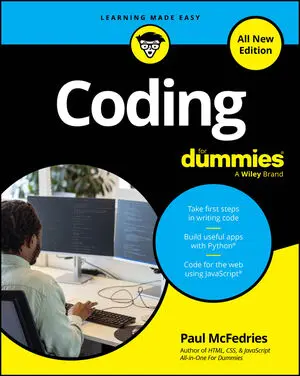Variables in Ruby are named using alphanumeric characters and the underscore (_) character, and cannot begin with a number or capital letter. Variables, like in algebra, are keywords used to store data values for later use. Though the data stored in a variable may change, the variable name will always be the same.
Think of a variable like a gym locker — what you store in the locker changes, but the locker number always stays the same.
The table lists some of the data types that Ruby can store.
| Data Type | Description | Example |
|---|---|---|
| Numbers | Positive or negative numbers with or without decimals | 156–101.96 |
| Strings | Printable characters | Holly NovakSeñor |
| Boolean | Value can either be true or false | truefalse |
To initially set or change a variable’s value, write the variable name and use one equals sign, as shown in the following example:
myName = "Nik" pizzaCost = 10 totalCost = pizzaCost * 2
Unlike JavaScript, Ruby does not require you to use the var keyword to declare a variable, or to set its value the first time.
Variable names are case sensitive, so when referring to a variable in your program remember that MyName is a different variable from myname. In general, give your variable a name that describes the data being stored.






